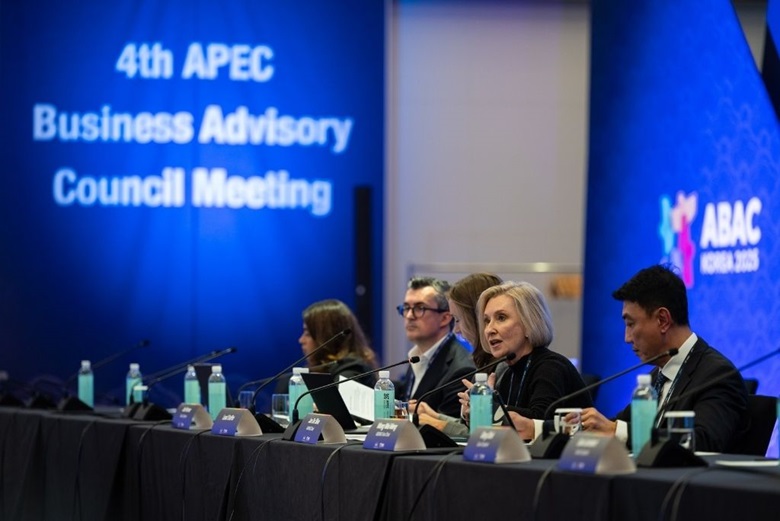ABAC Report Highlights Innovative Solutions for More Sustainable Data Centers

Today, the APEC Business Advisory Council (ABAC) released its report titled Powering the Digital Economy: The Data Center Dilemma, highlighting both the economic benefits and environmental impact of the digital economy. Over the past few years, the mass adoption of streaming platforms, online gaming, and cloud storage, combined with billions of devices in constant operation, has fueled unprecedented demand for data centers and energy to power them. The rise of AI is scaling the pressure for this critical digital infrastructure.
Data centers, the backbone of today’s digital economy, are driving unprecedented electricity demand. As AI adoption accelerates, total consumption from data centers could quadruple by 2030, with some AI clusters already drawing as much power as entire cities.
“Today, one in five data centers is at risk of power shortages or grid connection delays as demand outpaces available capacity. While data centers can be built in months, the energy infrastructure that sustains them takes years to expand. Without timely, coordinated action, APEC economies face mounting power shortages, infrastructure delays, and an accelerating digital divide,” said Jan De Silva, Chair of ABAC’s AI & Digital Innovation Working Group (AIDIWG).
“The digital divide today is no longer just about internet access; it’s about grid resilience, capital access, and human capacity. Without sustainable infrastructure, many economies risk being left behind in the AI revolution,” added Wong Wai Meng, Vice-Chair of ABAC’s AIDIWG.
The report urges policymakers to work with the private sector to accelerate the development of sustainable digital infrastructure, from data centers and computing capacity to water and power systems that support them. It calls on APEC economies to integrate digital economy demand forecasting into their energy planning to ensure economies are well positioned for sustainable digital transformation.
This report builds on ABAC’s Declaration on Sustainable AI Infrastructure and Investment, highlighting the pivotal role the private sector plays in advancing energy-efficient, climate-aligned digital infrastructure, and on ABAC’s earlier Statement on Artificial Intelligence, calling for the responsible development and implementation of AI technology.
“Businesses see enormous opportunity in AI, but without sustainable infrastructure, that opportunity won’t be shared equally,” added Kyuho Lee, ABAC 2025 Chair, “This is a chance for APEC to lead by strengthening the foundations of a digital economy that advances innovation, enhances competitiveness, and supports our collective climate goals.”
The future of AI in APEC lies not only in speed and scale, but in building a sustainable and inclusive digital economy. This report offers practical strategies for policymakers and the private sector to ensure data centers remain a strategic asset without furthering the strain on grids or the environment.
For further information, please contact:
Hyungkon Park (Mr), ABAC Executive Director 2025 at +82 2 6050 3686 and [email protected]
Antonio Basilio (Mr), Director, ABAC Secretariat at +63 917 849 3351 and [email protected]

